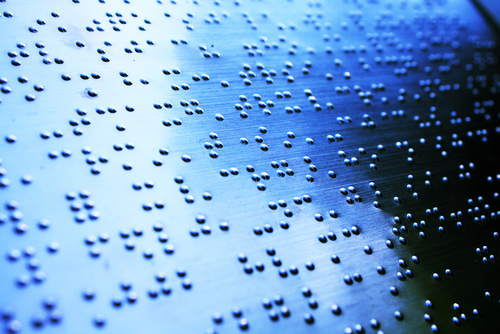Since its inception, the American Foundation for the Blind has been dedicated to promoting the use of braille. We have championed braille literacy, the use of technology to facilitate access to information in braille, the development of effective codes to allow for efficient production of braille material, and even for sharing of braille material across international borders. We continue this work by stating our strong endorsement of the Unified English Braille Code (UEBC) and call upon the Braille Authority of North America to adopt this code.
Adoption of the UEBC is all the more important as it would allow the United States to take advantage of developments in technology and public policy, along with a renewed focus on the critical importance of braille to greatly increase the potential for the integration of braille into education and everyday life. The proliferation of computers and mobile devices capable of supporting braille displays make it essential that braille translation be supported by a code that facilitates the accurate, automated conversion of print to braille (forward translation) and from braille to print (back translation). The UEBC would help to remove inconsistencies within the current braille code, as well as allowing braille to keep up with changing print conventions not effectively addressed in the current literary braille code. In addition, the UEBC would facilitate the ability of a braille user to write in braille for instant communication and collaboration with non-braille readers.
AFB is pleased that the UEBC has been developed with input from key stakeholders to achieve balance among many important interests, including keeping the general-purpose literary code as its basis, enabling braille to convey the same information as print, allowing for the addition of new symbols not currently available in literary braille, providing flexibility to change as print changes, reducing the complexity of rules, and allowing greater accuracy in translation. Ultimately, the UEBC would facilitate greater international opportunities for sharing braille files and braille materials, and it would also enhance opportunities for people who are blind to participate in STEM (science, technology, engineering, and mathematics) careers. Of course, it would also allow braille to adapt right alongside print in meeting the needs of blind people participating in our popular culture.
Braille page photo courtesy of Shutterstock.
